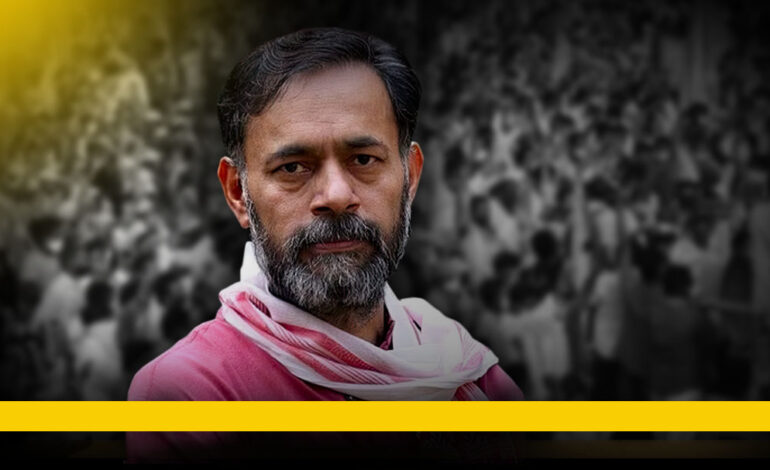The Importance of Being Abid Hasan Safrani
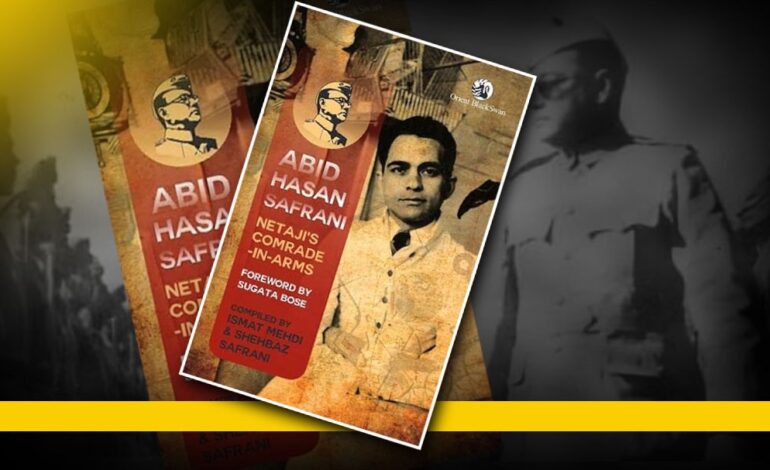
‘Abid Hasan Safrani: Netaji ‘s Comrade-in-arms’ (ORIENT BLACK SWAN; Rs.895; 2023 ) is a slim volume put together by Ismat Mehdi and Shehbaz Safrani, presenting a crisp and engaging narration of the illustrious personality who is immortalised by the slogan “Jai Hind”. Safrani had coined the slogan on the directions of Subhas Chandra Bose, when Netaji wished that the India National Army (INA) led by him should have special salutation. The INA spread this salutation wherever it moved in the early 1940s, but the slogan has lived on through decades. After India attained independence in 1947, the country’s first Prime Minister Jawaharlal Nehru adopted it as a national slogan.

As the very title of the book suggests Safrani was Netaji ‘s Comrade-in-arms and this slim volume brings out diverse facets of this freedom fighter’s fascinating and adventurous life. The foreword of the book is by historian Sugata Bose, grand nephew of Netaji and a former Member of Parliament. Sugata Bose notes that Safrani was “a quiet revolutionary who kept himself out of the limelight even while being present at every vital scene and moment of the final phase of our freedom struggle across Europe and Asia.” Sugata Bose describes with great emotion the visits of Abid Hasan Safrani to the Kolkata home of his father Sisir Kumar Bose, who was Netaji`s charioteer during his great escape from Kolkata in January 1941. Clearly, Abid Hasan Safrani and his associates, who were all followers of Netaji loved to live daringly, but studiously kept themselves away from public attention.
Abid Hasan Safrani was born at Hyderabad on 11 April 1911, in a distinguished family of the province. He was attracted to the freedom struggle and the Congress movement right from his adolescent years. In his youth, he went to England for higher studies and from there to Berlin to pursue a course in Engineering. It was in Berlin that he met Netaji Subhas Chandra Bose. Netaji’s call for the cause of India`s freedom had such a great impact on the young mind of Safrani that he immediately joined him as his personal secretary and interpreter. Once with Bose, he became his confidant. Their interactions were regular and it was in one of those meetings that Netaji asked Safrani to coin a special salutation for the INA. Safrani’s first suggestion was the plain and direct ‘Hello’ which Bose rejected outright. Following which Safrani suggested ‘Hindustan Ki Jai’ which Bose found interesting but too long. Ultimately, Safrani reduced it to ‘Jai Hind’ which clicked with Netaji.
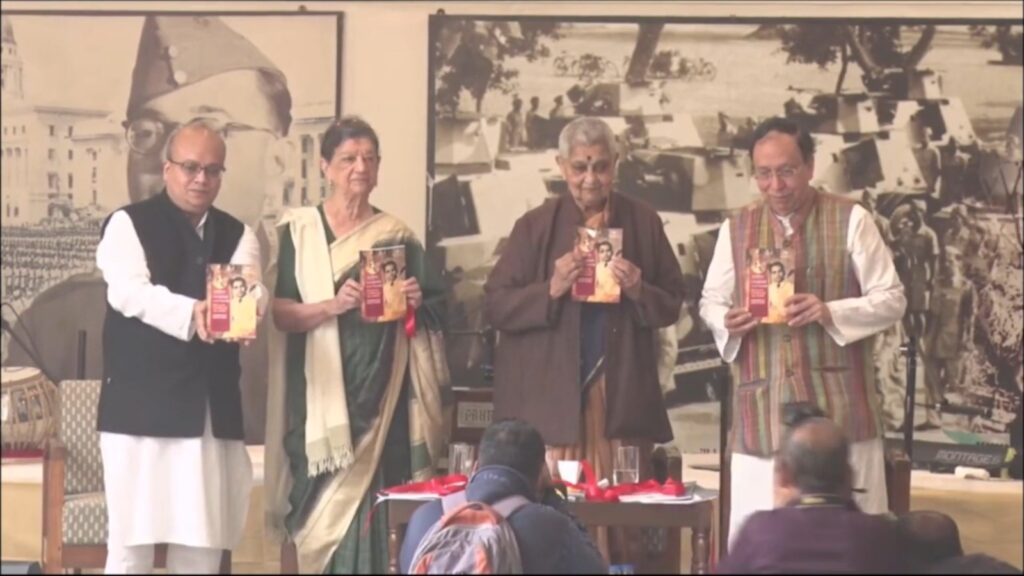
An interesting part of the book is the description by Safrani of Bose’s meeting with Hitler on 29 May 1942. Hitler promised Bose help in his march to free India once he emerged victorious in his campaign against Russia. However, this conquest of Russia never happened. Earlier in another context he had met Mussolini as well in 1935. These meetings and associations were certainly in contrast to other Congress leaders like Gandhi and Nehru who never had any interaction with the Fascist or Nazi leadership on a matter of principle. In Safrani’s perspective, Subhas Bose’s attitude was such that he was willing to take the help of any power which could help him militarily to achieve the goal of freeing India. Also mentioned in the book significantly is Netaji`s complete divorce from religion in public affairs as he believed it had no place in politics even though he was a deeply religious man.
Thereafter when Bose left for Japan by submarine, Safrani accompanied him as his sole companion on the historic submarine journey from Kiel to Sumatra, in the cramped confines of the vessel. Both the leader and his aide made the best of their circumstances. It is a tribute to Safrani`s dedication that Subhas Bose selected him from his many colleagues to be his companion on this arduous trip to Japan. Many emergency situations came up one after the other during the trip which Bose handled in a cool manner. After all this, Bose arrived in Tokyo to a rousing reception.
Further on, Subhas Bose reached Singapore on 2 July 1943 and addressed the Indian Diaspora at the Cathay Theatre two days later. It was in this address that he emphasised the point on establishing a Provisional Government or a Government in Exile which would give way to a permanent government elected by the Indian people once independence was achieved. Safrani insisted that Netaji deliver the speech in Hindustani which he did in his usual eloquent manner. This was also the last time that Netaji had appeared in civilian clothes. Thereafter, he was always seen in military fatigues.
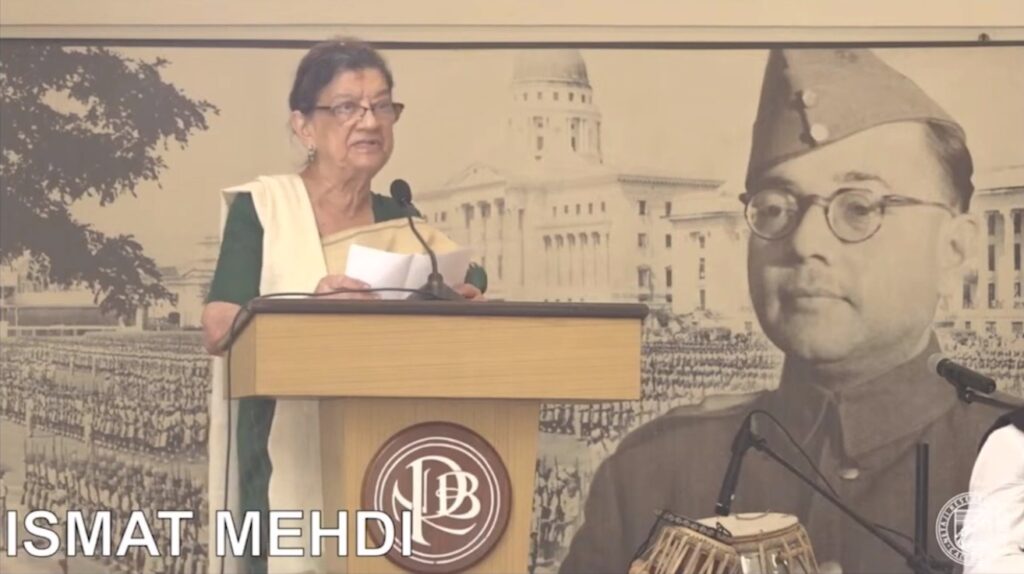
With eighteen thousand recruits from Burma, Malaysia and Singapore and forty thousand Indian Prisoners of War present in Singapore the ranks of the INA had risen to over fifty thousand. The Provisional Government of the Indian National Army or the Azad Hind Fauj was declared at Singapore on 21 October 1943. Netaji wrote the proclamation himself drawing on Indian History along with elements of the Irish and American declarations of independence. Netaji used to work late into the night with a glass of brandy and a cup of coffee on his table, the amount of time he spent at the desk could be judged by the number of cigarette butts in his ashtray!
The ups and downs of the battle of Imphal by the INA in the words of Abid Hasan Safrani make interesting reading in the book. Netaji`s death on 20 August 1945, when his plane crashed immediately after take off from Taipei in Taiwan is well recorded in the book. A couple of days earlier Safrani had bid farewell to his beloved leader at Saigon. His final interaction with Bose also involved the last minute handing over of a golden cigarette case which had been a gift to him from Ribbentrop when he was in Germany.
The fervor of the INA Trials at the Red Fort in 1945 is vividly described in the book as follows, “In November 1945, people suddenly burst out on the streets of Calcutta raising slogans of ‘Marshal Bose Zindabad’ and ‘Cholo Dilli Colo’. The city reverberated with shouts of ‘Jai Hind’. Although three INA Officers Shah Nawaz Khan, Prem Singh Sahgal and Gurbaksh Singh Dhillon were sentenced to deportation for life to the Andaman Islands, the sentences were condoned by the then Commander-in-Chief of the Army, Field Marshal Sir Claude Achinleck under public pressure.”
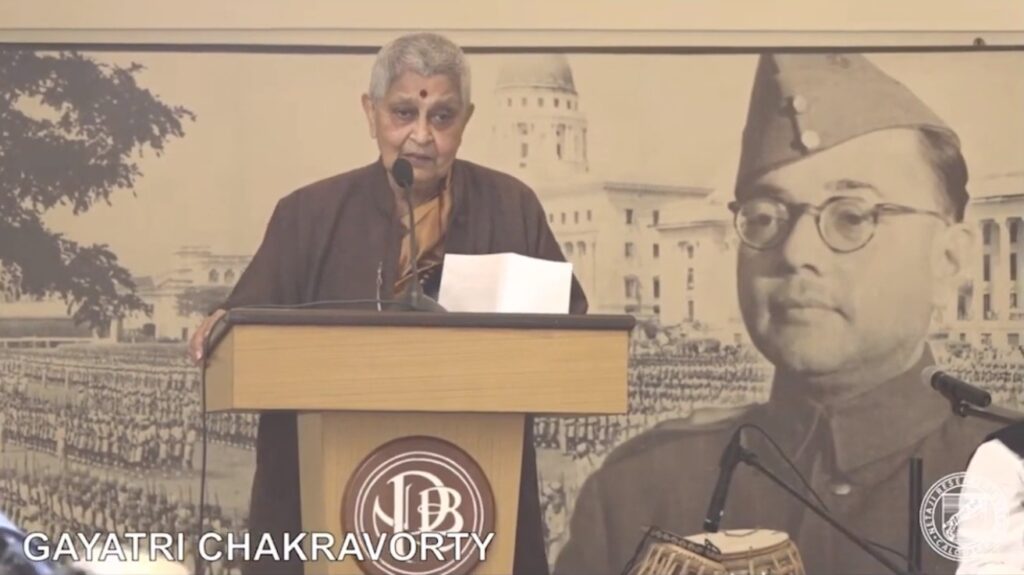
Post Independence, Safrani joined the Indian government as a diplomat and had postings in Switzerland, Iraq and Syria. He held Ambassadorial assignments in Senegal and Denmark before his retirement in 1969. It can be rightly said that his diplomatic career was also illustrious to a fair degree, and members of his close family have narrated their various experiences in the book with their elder relative in the various posts he held in the Indian missions abroad. He did not believe like many other Ambassadors and Civil Servants posted in Indian Embassies abroad in partying and socializing a great deal. On the contrary he believed in spending his time developing contacts with the various strata of society which was useful to the country.
After retirement Safrani lived in Hyderabad where he died in 1984. The book is a compilation of writings on Safrani written by C. Narendra Reddy, Professor Ismat Mehdi and Shehbaz Safrani all of whom are related to the great freedom fighter turned diplomat. Some writings of Safrani are also included in the book. Altogether an interesting work, one hopes a more detailed book would be planned by the authors on this unsung freedom fighter, whose valiant life is relatively unknown to the younger generation.
To receive updates on detailed analysis and in-depth interviews from The AIDEM, join our WhatsApp group. Click Here. To subscribe to us on YouTube, Click Here.


